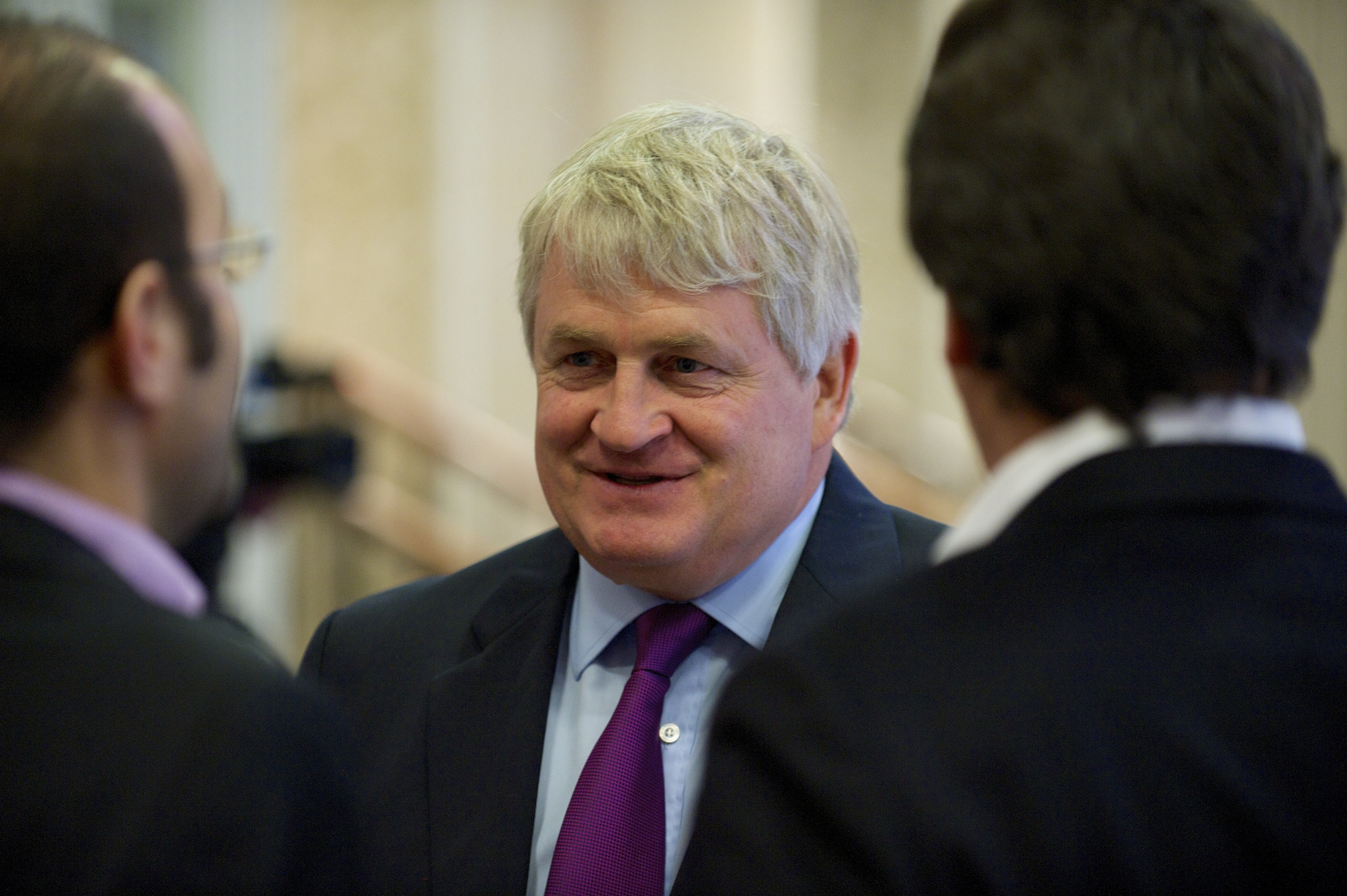
Irish oligarch Denis O’Brien is in the news again for issuing legal threats against satirical website Waterford Whispers.
Only weeks after the #redacted scandal – when he made similar threats to most of the media outlets he doesn’t own as well as independent MP Catherine Murphy – and days after he opened proceedings against the Irish Parliament itself, O’Brien has again sent in the lawyers to protect his ‘good name and reputation’. The response online has been predictably viral.
But despite his ongoing battle with the Streisand Effect, O’Brien remains a major player in Irish political life.
With an election coming up in the Republic how can this litigious billionaire’s influence on public life be curbed?
1. Break up his media empire.
Denis O’Brien is a major media mogul – owning all of Ireland’s national radio stations (NewsTalk, Today FM) apart from the state broadcaster, as well as the country’s biggest weekly (Independent) and Sunday broadsheets (Sunday Independent), a 50% share of its most well-read tabloid (Daily Star) and numerous other outlets. In total, Independent News and Media accounts for 40% of all national newspaper sales.
The National Union of Journalists in Ireland has criticised the concentration of media ownership in the Republic for decades, saying it has passed from “one baron to another.”
The union has called out the ‘political cowardice’ shown by successive governments in refusing to tackle “the concentration of ownership which directly influences the media landscape and the news we receive – and do not receive – every day.”
Instead of introducing new guidelines for the future, leaving O’Brien’s media empire today untouched (as proposed by Communications Minister Alex White), the NUJ proposes “an independent commission to examine all aspects of media ownership and control.”
If this commission had terms of reference with an emphasis on safeguarding the production and circulation of information from being captured by powerful individuals and the ability to recommend legislation strictly limiting how much media any organisation could own, it would be a good first step.
2. Tear down the defamation laws he uses to intimidate.
Ireland’s defamation laws are some of the most plaintiff-friendly in Europe. So much so, in fact, that we may expect libel tourism from big-wigs whose own countries’ laws don’t give them enough space to throw their weight around.
Among the many problems with the 2009 Defamation Act are its ridiculously complex list of factors for what can be considered fair and reasonable publication, a flimsy defence of honest opinion and an absence of a requirement for litigants to prove that any defamation caused serious harm.
These conditions provide the basis for O’Brien’s notoriously litigious behaviour, leading to a situation where it’s hard to know if he’s employing or suing more journalists at any given moment.
The next Irish government should respond to this string of controversies, not only from O’Brien but also high-profile cases like Pantigate, by radically overhauling the defamation laws and introducing First Amendment-style protections for free speech.
3. Take on the tax exiles.
Despite his inordinate influence on Irish public life, Denis O’Brien isn’t tax resident in the country, preferring the sunnier (and substantially cheaper) climes of Malta.
In an era of austerity, with his right-wing hyenas in the press crying out for further swingeing cuts, it only makes sense that Ireland’s richest man should be made to cough up.
A 2012 report by the government’s Tax Strategy Group suggested some ways this could be achieved.
One proposal was a citizenship or passport tax like exists in the US – making sure everyone pays a proportion of their income regardless of their location. Another was a change to the residency rules, introducing a ‘place of abode clause’ to catch out bogus exiles. Then there is the option of tightening up the criteria or increasing the cost for Ireland’s domicile levy.
Of course, all of these are relatively modest proposals. A more aggressive one would be to explore a significant tax increase with a penalty of stripping citizenship altogether if he doesn’t comply.
The Tax Strategy report warned that many Irish tax exiles would sever their ties to the country if its proposals were introduced. But, in Denis O’Brien’s case, that would be a plus!
If he does throw a strop and divest, it will leave us all freer to say and read what we like.
An anti-O’Brien platform for the election.
These are only the first steps of what a government serious about taking on Denis O’Brien would do.
The state could seriously pursue the findings of the Moriarty Tribunal that O’Brien paid off a government minister to acquire a mobile phone licence. There’s also his involvement with water meter installer Siteserv – which could be scuppered by scrapping Irish Water and the charges.
New fitness-for-ownership laws for the media wouldn’t go amiss, nor would further limitations on who can give (and how much) to political parties.
But this would be a start.
There’s a general election coming up in a few months and the Boy Named Sue has to be stopped. These are three simple proposals to put some manners on him. Ask your local candidates about them.
–
Novara Media will soon be trying to raise £10k in just 30 days. To keep in the loop, go to support.novaramedia.com.
